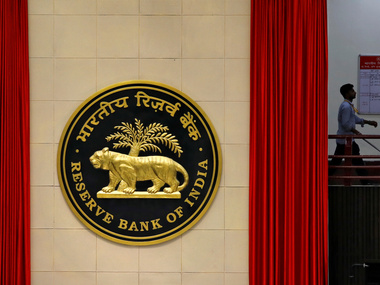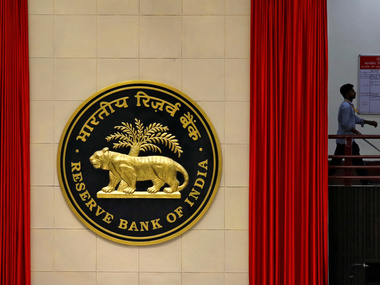Mumbai: First they were stripped of their utensils, furniture, mobile phones, televisions, ration cards and heirloom gold jewellery. Then, some of them drank pesticide. One woman threw herself in a pond. Another jumped into a well with her children.
Sometimes, the debt collectors watched nearby.
More than 200 poor, debt-ridden residents of Andhra Pradesh killed themselves in late 2010, according to media reports compiled by the government of the south Indian state. The state blamed microfinance companies — which give small loans intended to uplift the very poor — for fuelling a frenzy of over indebtedness and then pressuring borrowers so relentlessly that some took their own lives.
The companies, including market leader SKS Microfinance, denied it.
However, internal documents obtained by The Associated Press, as well as interviews with more than a dozen current and former employees, independent researchers and videotaped testimony from the families of the dead, show top SKS officials had information implicating company employees in some of the suicides.
An independent investigation commissioned by the company linked SKS employees to at least seven of the deaths. A second investigation commissioned by an industry umbrella group that probed the role of many microfinance companies did not draw conclusions but pointed to SKS involvement in two more cases that ended in suicide. Neither study has been made public.
Both reports said SKS employees had verbally harassed over-indebted borrowers, forced them to pawn valuable items, incited other borrowers to humiliate them and orchestrated sit-ins outside their homes to publicly shame them. In some cases, the SKS staff physically harassed defaulters, according to the report commissioned by the company. Only in death would the debts be forgiven.
The videos and reports tell stark stories:
One woman drank pesticide and died a day after an SKS loan agent told her to prostitute her daughters to pay off her debt. She had been given 150,000 rupees ($3,000) in loans but only made 600 rupees ($12) a week.
Another SKS debt collector told a delinquent borrower to drown herself in a pond if she wanted her loan waived. The next day, she did. She left behind four children.
An 18-year-old girl, pressured until she handed over 150 rupees ($3) — meant for a school examination fee — also drank pesticide. She left a suicide note: “Work hard and earn money. Do not take loans.”
In all these cases, the report commissioned by SKS concluded that the company’s staff was either directly or indirectly responsible.
Caught in the despair of poverty, tens of thousands of impoverished Indians kill themselves every year, often because of insurmountable debt. The supportive structure of the microfinance companies was supposed to change that.
But Davuluri Venkateswarlu, director of Glocal Research in Hyderabad, which conducted the industry-wide investigation, said in an interview that he told SKS executives there was “clear involvement of SKS personnel” in some suicides.
SKS continues to deny all responsibility for the deaths and says it never commissioned an independent inquiry. SKS spokesman JS Sai, who flew to Mumbai from the company’s Hyderabad headquarters to discuss the AP findings, said the company stands by its September 2011 affidavit before India’s Supreme Court. In that affidavit, chief executive MR Rao says SKS “is neither the cause of nor responsible for any suicides in the state of Andhra Pradesh.”
The deaths came after a period of hypergrowth leading up to the company’s hugely successful August 2010 initial public offering.
Originally developed as a nonprofit effort to lift society’s most downtrodden, microfinance has increasingly become a for-profit enterprise that serves investors as well as the poor. As India’s market leader, SKS has pioneered a business model that many others hoped to emulate.
But the story of what went wrong at SKS has led current and former employees and even some major shareholders to question that strategy and raise fundamental questions for the multibillion-dollar global microfinance industry.
Meanwhile, whistleblowers at SKS say that they have been targeted for retaliation and that the company has failed to correct structural flaws that contributed to the suicides.
“At the end of it,” said Alok Prasad, chief executive of the Microfinance Institutions Network, the industry group that commissioned the Glocal report, “you come down to a handful of cases where some things went wrong. Is that indicative of the model being bad or very rapid expansion leading to a loss of control?”
In 1997, Vikram Akula founded his Swayam Krishi Sangam, Sanskrit for “self-help society” and better known now as SKS. In 2005, SKS started operating as a for-profit company and Akula began chasing private investment to achieve the massive scale required to dent global poverty. In August 2010, SKS Microfinance — then India’s largest microlender — went public.
Then media reports began to surface that over-indebted borrowers were killing themselves.
In October 2010, a mob of 150 people surrounded SKS’s Hyderabad headquarters, protesting the suicide of a borrower’s husband. They threatened to drag the corpse inside and demanded $20,000.
It was one of dozens of deaths the government of Andhra Pradesh blamed on aggressive tactics by microfinance companies. Police jailed microfinance employees, including dozens from SKS. The state passed a law designed to clamp down on abuses with new restrictions on loan disbursement and collection and onerous registration requirements on the companies.
Microfinance officials fought the new law and denied the charges, accusing the state government of trying to gain traction with voters and punish companies for capturing valuable market share from state-run lending groups.
In a November 2010 letter to India’s finance minister, Akula defended his company and included supportive articles from The Wall Street Journal and the Financial Times. At the same time, the industry group Microfinance Institutions Network hired Glocal to investigate 44 deaths among debtors of microfinance companies, including SKS.
Venkateswarlu, the Glocal director, presented the findings to executives at three lenders. In January 2011, he delivered startling news to Akula and Rao: SKS employees had clear involvement in the suicides of four borrowers, meaning that their actions appeared strongly linked to the subsequent deaths, according to their investigation.
SKS sent internal audit teams to the field. Their reports exonerated the company.
Unable to reconcile the two sets of findings, SKS hired Guardian’s Human & Civil Rights Forum and Third Eye, a private investigative agency, to do a more thorough, independent inquiry, according to Ramesh Vautrey, head of administration at SKS, who oversaw the investigation, and Rajender Khanna, the president of Guardian’s.
Continues on the next page
A 17 January, 2011, letter from SKS, signed and stamped by Vautrey, asked Khanna to “carry out a fact finding enquiry on the causes of suicide and complicity of our field staffs without any prejudice,” according to a copy of the letter obtained by AP. The AP was shown invoice numbers for SKS payments to Third Eye and emails indicating the findings were sent to top management.
PH Ravikumar, who became interim chairman of the SKS board last November, said neither management nor the board authorised an independent inquiry into borrower deaths.
“Our enquiries from 2009 to 2011 have revealed that neither SKS nor its employees have been the cause for any of the suicides in the state of Andhra Pradesh,” the company said in a statement. The company also said SKS employees have been acquitted in two borrower suicide cases in Andhra Pradesh and that only one criminal case remains outstanding.
Khanna sent teams to speak with families of the dead, village leaders, neighbors and loan agents, videotaping the interviews. Their report said SKS employees bore direct or indirect responsibility for at least seven suicides, including two that overlapped with the Glocal findings.
The interview videos were shown to the AP by Uma Maheshwari, who said she was present during one set of recordings and visited several of the families personally. She left SKS in July.
Vautrey said he sent the case studies to three top managers, including Rao. Emails obtained by AP indicate that summary reports were emailed to the managers.
Rao did not respond to multiple requests from AP seeking comment.
Vautrey went to Akula’s office one night and told him what they were doing was bad karma.
“I don’t want to be part of a team abetting suicides,” Vautrey said in an interview. “It is systemic failure. We have no right to kill anybody for our own business. Let’s close down our business if we can’t do it right.”
On 6 February, SKS sold Rs 243 crore ($49 million) in securitised loans. The stock price surged 10 percent. Top executives have been on the road, hoping to raise Rs 500 crore ($100 million) from international investors.
Sai, the company spokesman, said SKS has hired an ombudsman, is spending $3 million to improve its customer grievance program and has revamped training to ensure that employees comply with current regulations and do not lend to over-indebted borrowers. He said the company would like to reorganise incentives to maintain rapid growth while ensuring loan quality. Those changes have yet to be implemented, he said.
Associated Press


)




)
)
)
)
)
)
)
)